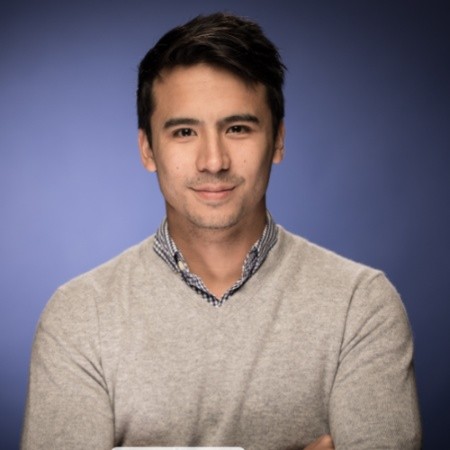After graduating from college, Alex de Leon started his career as a management consultant at Deloitte, but 6 months in, left to take a role at Google. It was a bit of risk, but it opened the door to a career in tech with a stint in Business School and now leads product marketing for Instagram Asia. Along the way, Alex worked in sales, account management, and now product marketing, and has learned great career lessons working alongside smart and hard-working people. He shared with us some of his thoughts on taking career risks, being patient, and what he’s learned along the way developing his career.
CareerSchooled: You started your career as a consultant, but quickly jumped to a role at Google. What led you to decide to make a move so quickly, and with the benefit of hindsight, what did you learn from taking that leap?
This stands out as one of the toughest decisions I’ve made in my career. I had just joined the firm and loved the people I was working with. Out of the blue, I received a call from Google and somehow made it through the hiring process to join a new team they were forming. Given that I was only six months into my Deloitte tenure, a lot of people said that it would make me look ‘flighty’ and that that perception would follow me around for some time. I was fresh out of college and wasn’t quite prepared for the burden of making a decision like this.
Looking back, joining Google changed my life trajectory entirely. Although I consider myself hyper-rational, especially when it comes to my career path, I learned that every so often you just need to take the plunge. There’s a quote from Sheryl Sandberg that I love where she said, “If you’re offered a seat on a rocketship, don’t ask what seat. Just get on”

CareerSchooled: What were some of the most important lessons and experiences you took away from your time at Google?
Five years at Google gave me the strongest foundation I could have imagined. When you’re working with the smartest people in the world, you need to be the best version of yourself as often as possible. Convincing high achievers to support an idea means that you have to be able to stand up to immense scrutiny. Did you do extensive due diligence? What does the data tell us? What’s been done before and why will this work differently? What tangible metric will we be driving?
One other important life hack I learned was ‘the meeting before the meeting’. Let’s say you’re proposing a new strategy or project to a senior audience. Instead of showing up the day of the presentation and hoping for buy-in, you schedule individual discussions beforehand with each stakeholder.
At best, by the time that you present it’ll be smooth sailing because everyone will have already pre-committed, and at worst, you’ll be better prepared for objection handling.
CareerSchooled: After spending a few years at Google, you also decided to go get your MBA. What led you to this, and what was your experience like in business school?
I think a lot of the decision to go to business school stemmed from my personal insecurity. I was a liberal arts major working in tech and often felt that I was overlooked for more senior job opportunities due to a lack of credentials.

Studying at INSEAD was an absolutely amazing experience. Given the international focus of my career, INSEAD was really the perfect environment for me. Nearly every student is ‘international’, and everyone I met had incredibly diverse backgrounds like ethnically Chinese but born and raised in Kenya, studied in Europe and worked in oil and gas in Latin America. I think this global focus manifests in other ways – all students need to be conversational in at least three languages in order to graduate, case studies are written about companies outside the US, and every weekend there are immersion trips (both school-planned and those hosted by students inviting us to their home countries).
CareerSchooled: After business school, you transitioned into Product Marketing. What led you to make the move into Product Marketing?
It was actually by accident, if I’m being honest. Whenever I meet with students, I always say that it’s important to segment your career into industry and function. In my case, I knew that I loved tech and was definitely in the right industry. However in terms of job function, I had sort of bounced around between partnerships, sales, and account management without really settling anywhere. After business school, I felt strongly that I wanted to work at Facebook but didn’t want to do sales again, fearing that it would be too repetitive from my time at Google. Out of the non-sales roles available, I saw an opening for a Regional Product Marketing Manager for Southeast Asia. On the product side, I definitely didn’t have sufficient relevant experience but I applied hoping that my background in Southeast Asia would make up for it.
After going through the full interview process, my application was put on hold for a couple of months. I’ve heard rumors that I wasn’t the first choice candidate for the role, but everything worked out 🙂
CareerSchooled: You’ve spent a few years working overseas and working for large technology companies serving APAC markets. What do you enjoy about working in Asia, and what are some of the similarities/differences between working in region versus working at Company Headquarters?
In a lot of ways, Asia is a completely different world. Several years ago, Google coined the term ‘The Next Billion’ as a way of describing the next billion people that would be coming online for the very first time, particularly through a mobile device. From a product perspective, that also begs the question – how do you build for these unique consumers? How do you run an e-commerce business when credit card penetration is as low as 5% in some developing countries? How do you improve watch time on video services when mobile data is expensive and users need to pay per kilobyte? There are no easy answers and that’s what I love most about Asia.
Internally, it can sometimes be difficult being physically so far away from the people that actually build the products. Living and working in Asia means that it’s incredibly easy to underestimate how well the local nuances and insights are understood by the the product teams.
Given how essential both consumer insights and feedback are to understanding product-market fit, trying to figure this out at a global scale is a challenge I think about almost every single day.
CareerSchooled: You’ve made a number of big career decisions in your career thus far. What advice do you have for others who are pondering large career decisions?
My biggest piece of advice is to plan your career and then work the plan. It sounds fairly straightforward, but I’ve met so many people that haven’t created long term visions for their professional life. When you’re imagining an ideal job, think about what your priorities are – normally, it’s some combination of location, industry, and role. From there, start thinking through how you’ll drive each one, beginning with the highest priority.
In 2013, I was really eager to pivot to Asia. However, when I began the search, I couldn’t find a role that would be even a lateral move in terms of scope. Eventually the only opportunity was doing direct sales in a really tiny office Google was launching in the Philippines. The role definitely wasn’t what I wanted in the long term, but it was also the clearest way for me to get to Asia.
After satisfying my location priority, I then focused on developing the other aspects of my career. Six years later, I’m still in Asia, working on products for a large tech company. It took a little longer than I hoped, but I’d like to think this was all (mostly) part of the plan.
CareerSchooled: What’s the most important lessons you’ve learned in your career?
Patience. In the early part of my career, I often fell victim to being overly ambitious, always eager for the next best thing. In any role, I would say it’s at least six months before you have any idea what’s happening and typically a year before you’re making any meaningful contributions.
At Google, I prematurely transferred to another internal team on two different occasions. In both cases, I still had a lot more than I could have learned if I stuck around a bit longer and was more patient.
CareerSchooled: As you think about growing and building your career, what are some goals or aspirations you have that you want to achieve?
I’m at an incredibly fortunate place right now because this is mostly where I wanted to end up when I was creating my five year plan in 2013. I just joined Instagram, leading our product marketing efforts for Asia and am still trying to figure out what my big bets will be.
I identify deeply with Instagram’s mission of connecting you to the things and people that you love. Consequently, I think my next set of career goals will be thinking through the small part I can play in enabling that mission.

